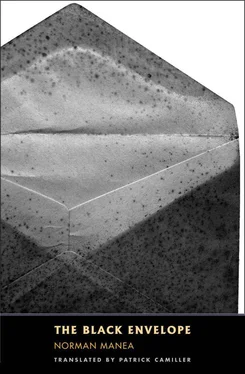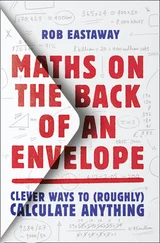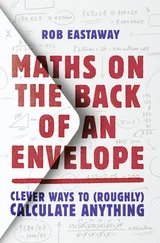Norman Manea - The Black Envelope
Здесь есть возможность читать онлайн «Norman Manea - The Black Envelope» весь текст электронной книги совершенно бесплатно (целиком полную версию без сокращений). В некоторых случаях можно слушать аудио, скачать через торрент в формате fb2 и присутствует краткое содержание. Год выпуска: 2012, Издательство: Yale University Press, Жанр: Современная проза, на английском языке. Описание произведения, (предисловие) а так же отзывы посетителей доступны на портале библиотеки ЛибКат.
- Название:The Black Envelope
- Автор:
- Издательство:Yale University Press
- Жанр:
- Год:2012
- ISBN:нет данных
- Рейтинг книги:5 / 5. Голосов: 1
-
Избранное:Добавить в избранное
- Отзывы:
-
Ваша оценка:
- 100
- 1
- 2
- 3
- 4
- 5
The Black Envelope: краткое содержание, описание и аннотация
Предлагаем к чтению аннотацию, описание, краткое содержание или предисловие (зависит от того, что написал сам автор книги «The Black Envelope»). Если вы не нашли необходимую информацию о книге — напишите в комментариях, мы постараемся отыскать её.
"Reading 'The Black Envelope,' one might think of the poisonous 'black milk' of Celan's 'Death Fugue' or the claustrophobic air of mounting terror in Mr. Appelfeld's 'Badenheim 1939'... Mr. Manea offers striking images and insights into the recent experience of Eastern Europe." —
The Black Envelope — читать онлайн бесплатно полную книгу (весь текст) целиком
Ниже представлен текст книги, разбитый по страницам. Система сохранения места последней прочитанной страницы, позволяет с удобством читать онлайн бесплатно книгу «The Black Envelope», без необходимости каждый раз заново искать на чём Вы остановились. Поставьте закладку, и сможете в любой момент перейти на страницу, на которой закончили чтение.
Интервал:
Закладка:
“Well, why don’t you hire her, Doctor? You can even make a scientific report: the priceless idea will bring you fame and immortality. Bring her on board at the hospital! Madam Death, with her superbly gleaming mask, her charitable soul and therapeutic body. The vestal providing an initiation in futility. Land! Land! cry the mariners. Women! The shore woman who gets us used to land again. The first and last truth. Earth we were, to the earth’s belly we return.”
“That’s right, kid. Lilith, Adam’s first woman, was only earth, like him. She’s known for a single action. She seduced two angels, found out the code word from them, opened the gates of heaven, and flew off. She deserted Adam. Only afterward was there Eve, his wife. The earth woman cannot be held fast by anything or anyone; she takes flight. Paradoxically she takes flight and arrives back in heaven.”
“How nice! Is the worldly old rationalist Marga really a believer? We all wear masks, we’re all substitutes. Are you a believer, Doctor?”
“No, I’m just mad about reading. It gets me closer to heaven, to my patients. You see, I could have listened to this evening’s music at home, as you said. But I wanted to be in a hall, among people. It’s not church, and the Bach organist isn’t a priest. But still—”
“I’m sorry. I didn’t think you were in a lyrical mood. I’d have kept clear of the ribaldry.”
“Ribaldry? My God is an atheist and he likes provocations, alternatives, improvisations, as you put it. And jokes, of course. He’s like us. He did make us in his likeness, didn’t he? So I’m on the side of that woman you find so intriguing.”
“Death! Lies, jokes, accommodations. Indifference, the improvisations of survival. In other words, Death, Death.”
“Mmm, I’m with the nameless ones who survive. Fickle and skeptical jesters are not my enemies.”
“But they don’t have a right to testify at a trial! That’s the point! Your nice guys forfeit their capacity to act as witnesses. That’s what’s written in the Koran. Jesters like that lose their capacity to bear witness at trials. That’s what it says, Doctor, that’s what it says in the book.”
“Okay, I’ll have another look at it. Books aren’t perfect, and readers aren’t either. If that’s what it says, I’ll ask for an erratum slip to be inserted. A little humor wouldn’t spoil the Holy Koran, believe me. As for truth, it can’t do without deception. The two stay married together, have adulterous affairs with each other, and do not part even in divorce. They’re always in contact, inseparable. You’re too morose, my little professor, really you are. The concert would do you good, believe me. Go into Bach’s chapel and learn some peace of mind.”
The doctor was really hurrying by now: he ran up the stairs and disappeared under the twilight arches.
Morose. Huh! Mr. F  nic
nic  Olaru and tonic Toni Marga proclaiming peace of mind. “Listen to me,” Marga had shouted in farewell, turning back from the top step of the Atheneum. “Once they’re said, lies take their revenge. They come true. They become reality, and that’s the ultimate truth.”
Olaru and tonic Toni Marga proclaiming peace of mind. “Listen to me,” Marga had shouted in farewell, turning back from the top step of the Atheneum. “Once they’re said, lies take their revenge. They come true. They become reality, and that’s the ultimate truth.”
Reality is not the ultimate truth, Doctor, murmured the patient, now sitting on one of the benches opposite the Atheneum. The conjuncture called reality can be negated, and waiting is not necessarily a lie, or an illusion, nor is resistance or truth a lie, or— After a long time he tightened the thick collar of his coat. Again he was far away, in winter, a stranger in winter, stuck in a long, implausible winter.
~ ~ ~
NO ONE ANSWERED. HEhad checked the address, the name, the telephone number: everything was correct, but no one answered. It’s working but not answering. So let’s go there, to the scene itself, to the house. If there’s still no one, then just maybe that no one will answer the door.
The week becomes dynamic: Wednesday on duty by the phone, Friday on the spot. Something will happen in the end, even if it is nothing that happens.
He waits at the Rond stop for tram number 23. The tram doesn’t come. The passenger waits, the tram comes, completely full; he waits for the next one, also full. The passenger clutches the bar at the doorway into the tram: he feels the shoulders, the sweat, the weariness of his fellow creatures, the real connection. At Mihai Bravul he takes another tram, number 5. Empty car. Mr. Dominic punches his ticket, folding it as the regulations require. A return ticket. But when he gets off, he carelessly throws it away. He crosses the street and catches the bus to the bread factory.
He gets off the bus, walks back about a hundred meters, arrives in front of the Scampolo store. The store is closed, for stock-taking. He turns into the little street to the right, as far as the old gray block of flats. He goes up to the second floor, gropes for the light switch, presses it. Somewhere a filament lights up. It’s only one more step to apartment 8.
He presses the button and the bell rings. The sound rushes into the apartment behind the door. Nothing. Once more. He waits: no movement. He rings again. One step back. He presses the light switch, the filament comes on, a dim light, hardly enough to see the stairs, the metal rail covered with green plastic dirty from so many hands and worn away by the years. He feels his way cautiously, walks down the stairs, finds again the little street, the Scampolo store, the bus stop, the bus, the tram stop, the tram, the return from the adventure.
With Friday a failure, there remains the following Wednesday. One hour bent over the dial that forms the roulette wheel of life, which he keeps turning, once, nine times, sixty times. Nothing. The number denies him dialogue.
Reality is a faint, a showing off, crumbs, a dandelion, a faint, that’s all. He dials with his right hand, holds an apple in his left. No one answers.
On Friday it is raining, in bucketfuls. Bus, tram, another tram, another bus. The gray pockmarked block. The dark door, the bell, and then back to the reality called Friday, which still exists, still houses him. Wednesday at the receiver’s silent mouth, Friday at the rebus scene. Again Wednesday, again Friday, swinging backward and forward in sleep. He no longer has patience; he demands to take the offensive. There’s still a century to go until Friday. Impossible to wait any longer: the faint called reality must be conquered, come what may. Anatol Dominic Vancea Voinov shakes the dice differently; he cheats. The slightest departure from the beaten track and, look, Friday appears instead of Thursday. Thursday rebaptized Friday. Today is Friday and tomorrow’s the same, Friday, doubling the ace, doubling his bad luck, doubling the uncertainty.
Waiting for the bus had driven him wild. Ever waiting, ever studying his fellow citizens’ footwear. He looked up: Gostat. State Stores. Vegetables, chickens, eggs — they ought to be in the Gostat hall, where there’s nothing but jars of pickles. But marvels do also appear, with their tails streaming behind. Look, here’s one. Some more time passed, some more thoughts passed through the observer’s pate as he studied some more pairs of nearby shoes. He looked up at the people across the street, fallen in line before the store. gostat. gostat. Eyes gazing into space, somewhere across the street. He kept staring at the substitute-leather shoes, at the line across the street, at the substitutes jostling each other for — for what? They ended up driving him crazy. Again he looked at the line of people, the door of the gostat store, then the wheelchair. He had seen the cripple’s wheelchair, and his mind went spinning with the wheels as he moved it off. Aimlessly, with a clear aim, he no longer saw anything, he saw everything: he crossed the street. No one was there, only Robot Windwhistle, blind, deaf, perfect, a screw loose, faultless mechanism, great speed, perfect working order, the fiery meteor was coming. Just a step away from the line he turned sharply and headed for the back. No one paid him any attention. The wheelchair had already started. Excuse me, would you mind, could you let me through. People made room. The gentleman was turning the wheels with great care: wheee whooo. . something somehow. . Hardly had the cripple’s whimpering become audible when the vehicle was already inside the hall, steered with great dignity by the elegant gentleman in white. Shiny red scarf around his neck, bald head, cosmopolitan self-assurance. The spectators shyly moved aside to make room for the distinguished samaritan and his sick relative. The pair had arrived in front of the counter. Four packages, ordered the intruder. The assistant did not even look at him. The bags had already flown off to the scales—“109 lei” was heard. Four chickens, 109 lei, was the judgment pronounced. The gentleman held out 110 lei, refused the change with a gesture of disgust, gripped the bar of the wheelchair again, and turned it around and around. Wheee, whooo, whined the cripple. They were back at the door. The packages with the headless chickens lay on the sick man’s knees. A shudder passed down the customers’ side. The voice of the crowd converged in the croak of one pensioner, who was hopping with fury: You shameless rogue, taking advantage of this poor wretch! You good-for-nothing, spitting in the face of the hundreds of people waiting their turn! You little drip! You dirty little swine!
Читать дальшеИнтервал:
Закладка:
Похожие книги на «The Black Envelope»
Представляем Вашему вниманию похожие книги на «The Black Envelope» списком для выбора. Мы отобрали схожую по названию и смыслу литературу в надежде предоставить читателям больше вариантов отыскать новые, интересные, ещё непрочитанные произведения.
Обсуждение, отзывы о книге «The Black Envelope» и просто собственные мнения читателей. Оставьте ваши комментарии, напишите, что Вы думаете о произведении, его смысле или главных героях. Укажите что конкретно понравилось, а что нет, и почему Вы так считаете.












